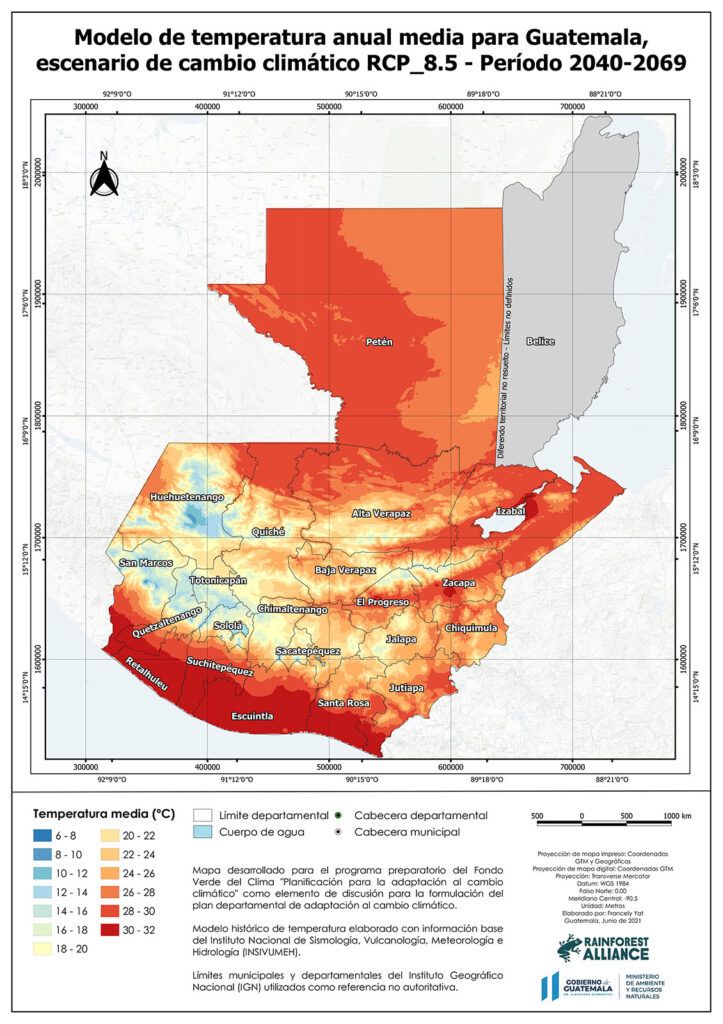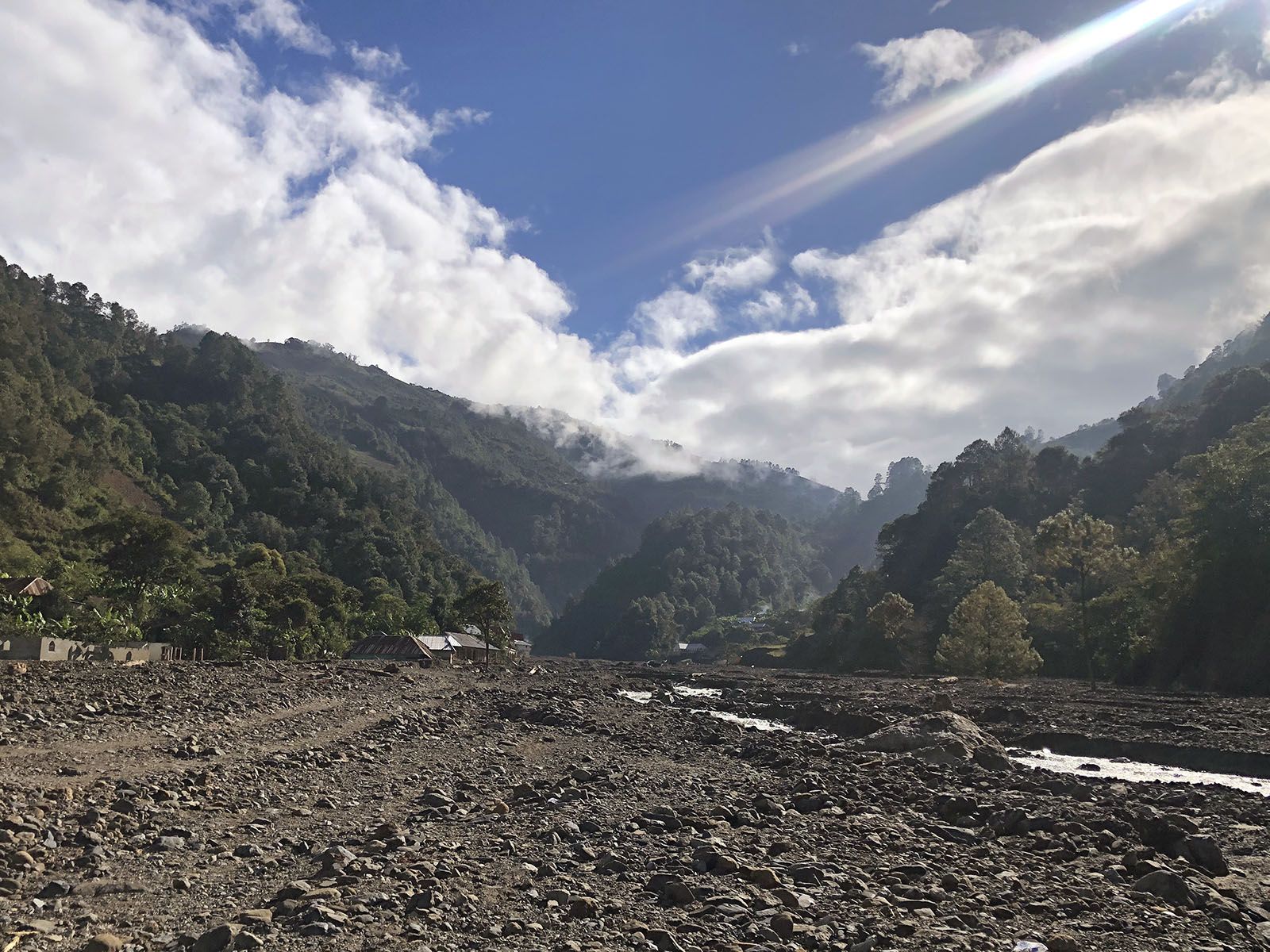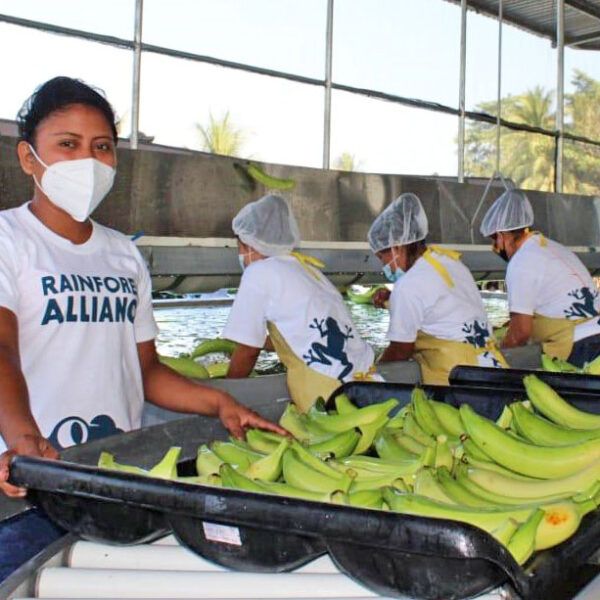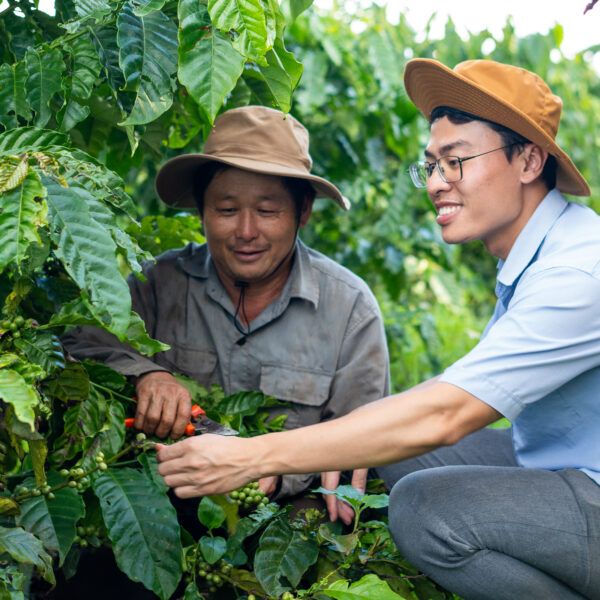Guatemala is a biodiversity hotspot. From warm coastal regions to mountainous highlands to the tropical forests of northern Petén, the country is home to a wide range of micro-climates across its 22 departments—all of which are vulnerable to the effects of climate change. The country’s dry corridor—a large belt of land spanning the middle of the country—is one of the most vulnerable regions to extreme climate variability in the world.
Rural communities throughout these regions have high rates of poverty and are largely dependent on natural resources for their livelihoods. As the effects of climate change take hold, these communities will not be prepared to adapt quickly enough, exposing large swaths of the country’s population to extreme climate disasters such as prolonged droughts and flooding. If left unchecked, climate change could collapse entire regions of the country, resulting in a surge of forced displacement and migration in the coming decades.
While the Government of Guatemala has made significant progress in mobilizing institutional leadership around climate-related challenges—particularly through its Climate Change Framework Law (2013) and subsequent National Climate Change Action Plan (PANCC), which outlines broad guidelines on climate action in the country—it faces barriers to ensuring PANCC is implemented on the ground in communities. It also faces roadblocks to integrating climate actions into existing economic and development initiatives and policies. Some of these challenges include poor collaboration between government groups at the national and local level, insufficient science-based climate information to inform adaptation plans, a lack of standardized procedures for climate modeling, and low funding, among others. The Rainforest Alliance is partnering with the Government of Guatemala to help them address these challenges and increase their capacity to adapt to climate risks and improve the livelihoods of those who live in vulnerable communities around the country.
Location
Guatemala
Period
2020-2022
Partner communities
The Rainforest Alliance is working in collaboration with Guatemala’s Ministry of the Environment and Natural Resources, the Presidential Bureau for Planning and Programming, and the Departmental Development Councils. Climate adaptation plans will be created for Guatemala’s 22 departments in collaboration with local partners in at-risk forestry and farming communities.
Project objectives: mapping risks and strategic planning to help communities adapt

The overarching goal of the project is to strengthen and streamline Guatemala’s national climate adaptation processes so that the country will be better prepared to handle the challenges of climate change. The Rainforest Alliance will provide support in three key areas:
National adaptation planning and climate vulnerability assessments
We will improve the Government of Guatemala’s capacity to assess climate change vulnerability information and conduct inclusive adaptation planning at the national and departmental levels through targeted training and meetings with different governmental actors, industry guilds, and farmer cooperatives, among others. This includes helping government departments apply a standardized climate modeling system to help predict the expected effects of climate change and create a country-wide map of current and future climate change risks and sensitivities. Local partners will conduct climate vulnerability assessments which will serve as the basis for local adaptation plans that can be implemented across the country.
Improving communication and knowledge sharing
We will help the Government of Guatemala establish inclusive processes for information sharing, communication, and knowledge management on climate change adaptation. One way we will do this is through the creation of a geo-portal where climate maps, data, and plans can be easily accessed.
Fundraising support
We will provide guidance to the public and private sector on best practices for raising and managing climate-related funds as well as on effective strategies for investing them in adaptation planning and implementation activities.
Desired impacts: extensive climate data translated into actionable plans
By the end of the project, Guatemala will have:
A nationwide climate change vulnerability assessment and gender analysis
Through the local climate vulnerability assessments, the Government of Guatemala will have accurate and up-to-date climate vulnerability data that covers 100 percent of the country. This information will be incorporated into a nationwide “vulnerability atlas”, which will document climate exposure levels as well as the unique adaptive capacities of each department. Importantly, the assessments and subsequent adaptation plans will be gender-sensitive. This means that during each stage of the adaptation planning process gender analyses will be carried out. These analyses will define how men and women access and make use of natural resources as well as how they experience and respond to climate impacts differently. Project staff will use a gender framework to mitigate barriers and constraints related to power dynamics, transparency, inequality, and collective action that often hinder adaptation planning processes in Guatemala.
22 local adaptation plans, one for each department in Guatemala
These plans will determine strategic actions to decrease vulnerability and improve adaptive capacity. These plans will have been developed through an extensive process with local stakeholders in each department and will include specific targets and culturally and economically appropriate adaptation measures that can be feasibly implemented within communities.
Climate-related data integrated into the National Climate Change Information System
This will facilitate widespread dissemination of information and the identification of learning opportunities, gaps, and best practices in adaptation planning.
A pipeline of adaptation project ideas
These ideas will outline the most important sectors for investment and include two concepts for high-impact adaptation initiatives that can be submitted to the Green Climate Fund.
Funders
The funder for this project—full name “Strengthening National Adaptation Planning Process in Guatemala”—is:
Implementing partners
- The Ministry of the Environment and Natural Resources of Guatemala
- Guatemala’s Presidential Bureau for Planning and Programming
- Guatemala’s Departmental Development Councils
Rainforest Alliance contact
José Furlán, climate change and vulnerability manager




